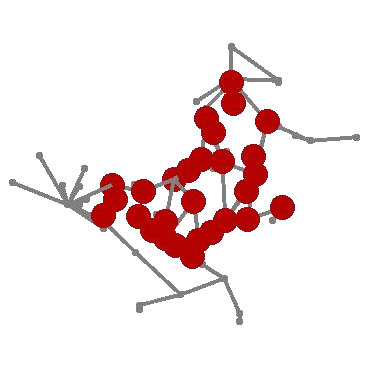Dr. Cora Kohlmeier
Institute for Chemistry and Biology of the Marine Environment (» Postal address)
Growth of Hydractinia Echinata

Phenotypic plasticity might be a necessary strategy of sessile marine organisms to withstand changing environmental conditions due to climate change. Hydractinia echinata, a colonial hydroid, in vivo encrusting gastropod shells inhabited by the hermit crab Pagurus bernhardus, is a good candidate for investigations how organisms react on rapid changing environmental conditions. Lab experiments initiated by J. Strahl and D. Tschink from the working group Animal Biodiversity and Evolutionary Biology (Gerlach) build the base for the investigation of the key processes leading to morphological plasticity of the organism. A discrete process oriented model is developed simulating the growth of the colony under different environmental forcing. The model represents the main characteristics of the colony such as polyp numbers and colony area and also simulates the spatial growth by a network like model setup.



![[Translate to English:]](/f/5/_processed_/3/2/csm_ICBM-Logo-transparent-_91fe1c6774.png)